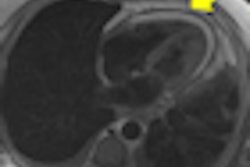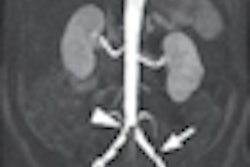Researchers in Massachusetts may have uncovered additional evidence that several previously studied genetic variants are associated with the development and progression of Alzheimer's disease, according to a report in the June issue of Archives of Neurology.
The study from researchers at Massachusetts General Hospital in Boston and Broad Institute in Cambridge also may have identified new genetic risk factors that could lead to additional research in the investigation of Alzheimer's disease (Arch Neurol, June 2010, Vol. 67:6, pp. 677-685).
Lead authors Alessandro Biffi, MD, and Christopher Anderson, MD, and colleagues studied the associations between genes and neuroimaging results among 171 individuals with probable Alzheimer's disease, 364 subjects with mild cognitive impairment, and 205 people who were cognitively normal.
With the help of 1.5-tesla MRI, the researchers found that neuroimaging measures, including the volume of hippocampus, amygdala, and other brain structures, also correlate with the risk and progression of Alzheimer's disease.
"The demonstration that recently discovered genetic risk factors for Alzheimer's disease also influence these neuroimaging traits would provide important confirmation of a role for these genetic variants and suggest mechanisms through which they might be acting," the authors wrote.
Among the 364 patients with mild cognitive impairment, follow-up identified 140 subjects who advanced to an Alzheimer's diagnosis, while 217 cases did not. Three Alzheimer's cases were changed to mild cognitive impairment, and 18 mild cognitive impairment subjects were changed to control status.
The researchers assessed four loci previously associated with Alzheimer's disease and six neuroimaging traits linked to Alzheimer's disease. The apolipoprotein E (APOE) gene had the strongest association with clinical Alzheimer's disease and was associated with all the neuroimaging traits except one. The other candidate genes showed a significant cumulative effect on the neuroimaging measures analyzed.
The authors noted that APOE and other previously validated loci for Alzheimer's disease affect clinical diagnosis of Alzheimer's disease and neuroimaging measures associated with disease.
In addition, the genetic analysis of neuroimaging traits identified two new target gene locations -- bridging integrator 1 (BIN1) and contactin 5 (CNTN5) -- for their relationship with Alzheimer's disease.
"Although our results for these loci can only be considered preliminary, they may help prioritize targets for future genetic studies and genomewide association studies in Alzheimer's disease, particularly given their association with neuroimaging correlates of Alzheimer's disease and disease status," the study noted.
By Wayne Forrest
AuntMinnie.com staff writer
June 14, 2010
Related Reading
PET can help clarify dementia diagnoses, May 3, 2010
MRI hippocampal measurement doesn't predict cognitive decline, April 26, 2010
PET finds risk factor for Alzheimer's in Latinos, April 15, 2010
MR scans may detect signs of early dementia in elderly, April 14, 2010
Brain scans show signs of early Alzheimer's: study, March 16, 2010
Copyright © 2010 AuntMinnie.com


.fFmgij6Hin.png?auto=compress%2Cformat&fit=crop&h=100&q=70&w=100)





.fFmgij6Hin.png?auto=compress%2Cformat&fit=crop&h=167&q=70&w=250)











